Pods n more
A selection of Seagrass and Marine related Podcasts and Visual media.
Podcasts
PODCAST
04 May 2024
Think Wildlife Foundation: Saving India’s Dugongs | Restoring Seagrass Meadows with Elrika D’Souza : In this episode, Elrika D’Souza, one of India’s leading marine biologists, elaborates on her dugong and seagrass conservation work at the Nature Conservation Foundation. Tune in to listen more!
PODCAST
28 September 2023
Radio Marinara: eagrass Propagation Fam and Kade talk to Dr Beth Strain on seagrass propogation in Tasmania
2022
PODCAST
28 October 2022
Curiosity Daily: Today we talk about how crystallizing human urine can help save seagrass
PODCAST
28 June 2022
How marine conservation benefits by blending Indigenous knowledge and western science : We discuss the effectiveness of combining traditional Indigenous ecological knowledge and Western science for conservation and restoration initiatives on this episode.
PODCAST
21 June 2022
Seagrass meadows: can we rewild one of the world’s best carbon sinks?
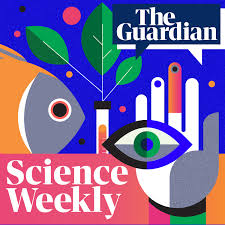
PODCAST
18 May 2022
Save the Seagrass, Save Ourselves? : In the UK, we’ve lost more than 90% of our seagrass habitat. What can we do about that, you ask? Listen to find out!
2021
PODCAST
01 December 2021
Wild About Seagrass with Dr Richard Lilley: RJ has over nine years experience of research in marine systems. He has primarily worked in the Caribbean and Mediterranean Seas and more recently the North Atlantic Ocean. We talk about seagrasses in the UK, but also globally.
PODCAST
05 September 2021
Sharks and Seagrass: If you’re spending an afternoon on your favorite bay, you probably don’t want to see any sharks gliding through the water. But the bay itself just might. Without sharks, the ecosystem can change — in ways that can be bad for the bay and anyone living near it.
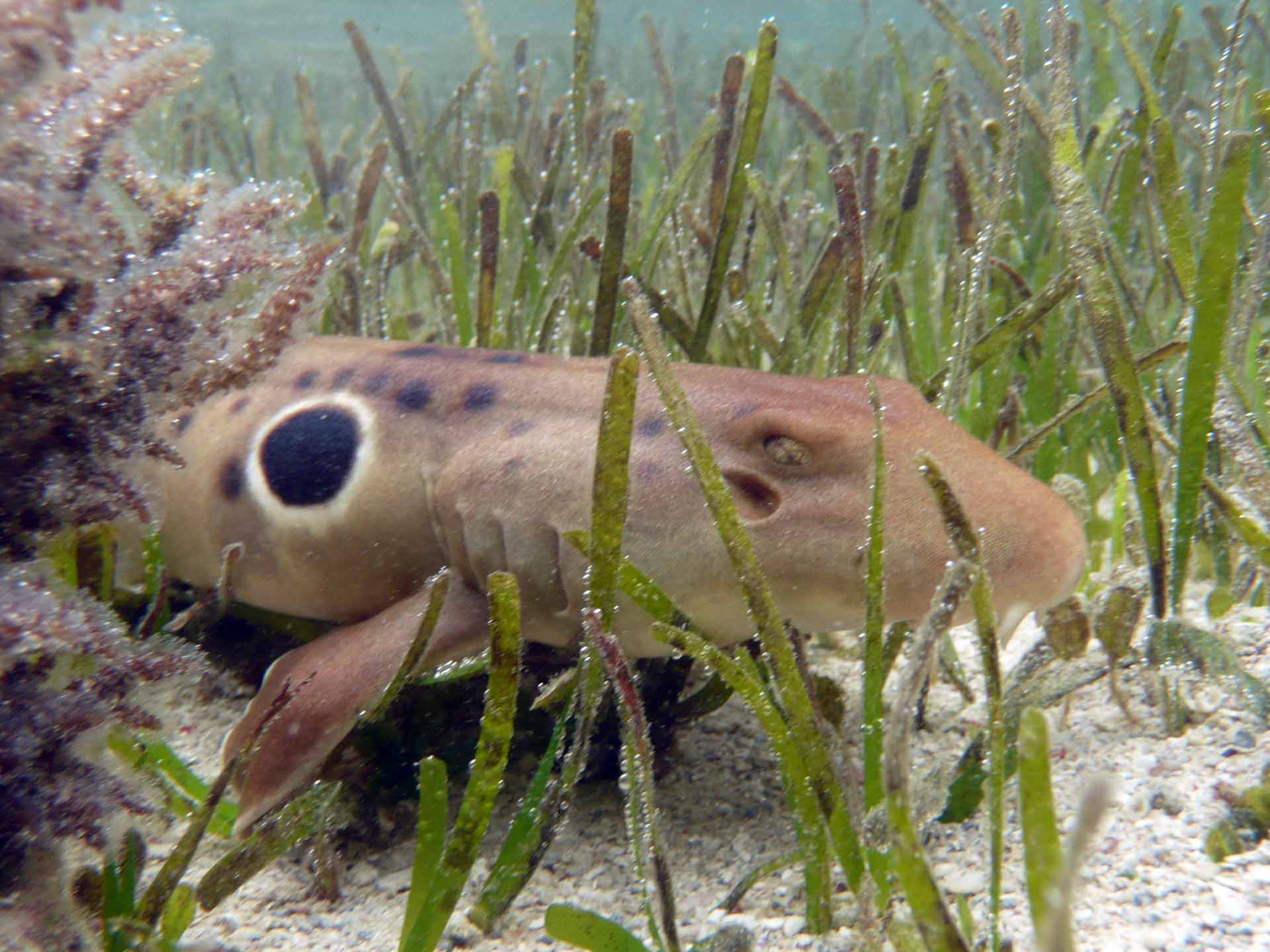
PODCAST
31 August 2021
Capturing Carbon:Seagrasses are remarkable plants and are able to trap tiny particles of organic matter and form a stable, carbon-rich sediment that prevents greenhouse gases from being released into the atmosphere. Sally Le Page chatted with Leanne Cullen-Unsworth, the director of research at Project Seagrass to find out more
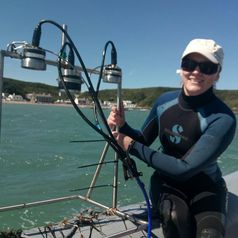
PODCAST
07 August 2021
Marine habitat restoration in the UK:Explore the need for active restoration to conserve four incredible marine habitats: native oyster beds, saltmarshes, kelp forests and seagrass.
39:16 – Dr Richard Unsworth joins the hosts to talk about the importance of seagrasses,
PODCAST
13 May 2021
Seagrasses And Ocean Acidification:These marine forests are valuable for many different reasons including climate mitigation and erosion control. A third of the carbon dioxide emitted across the globe is absorbed by the ocean and seagrass meadows are an important carbon sink.
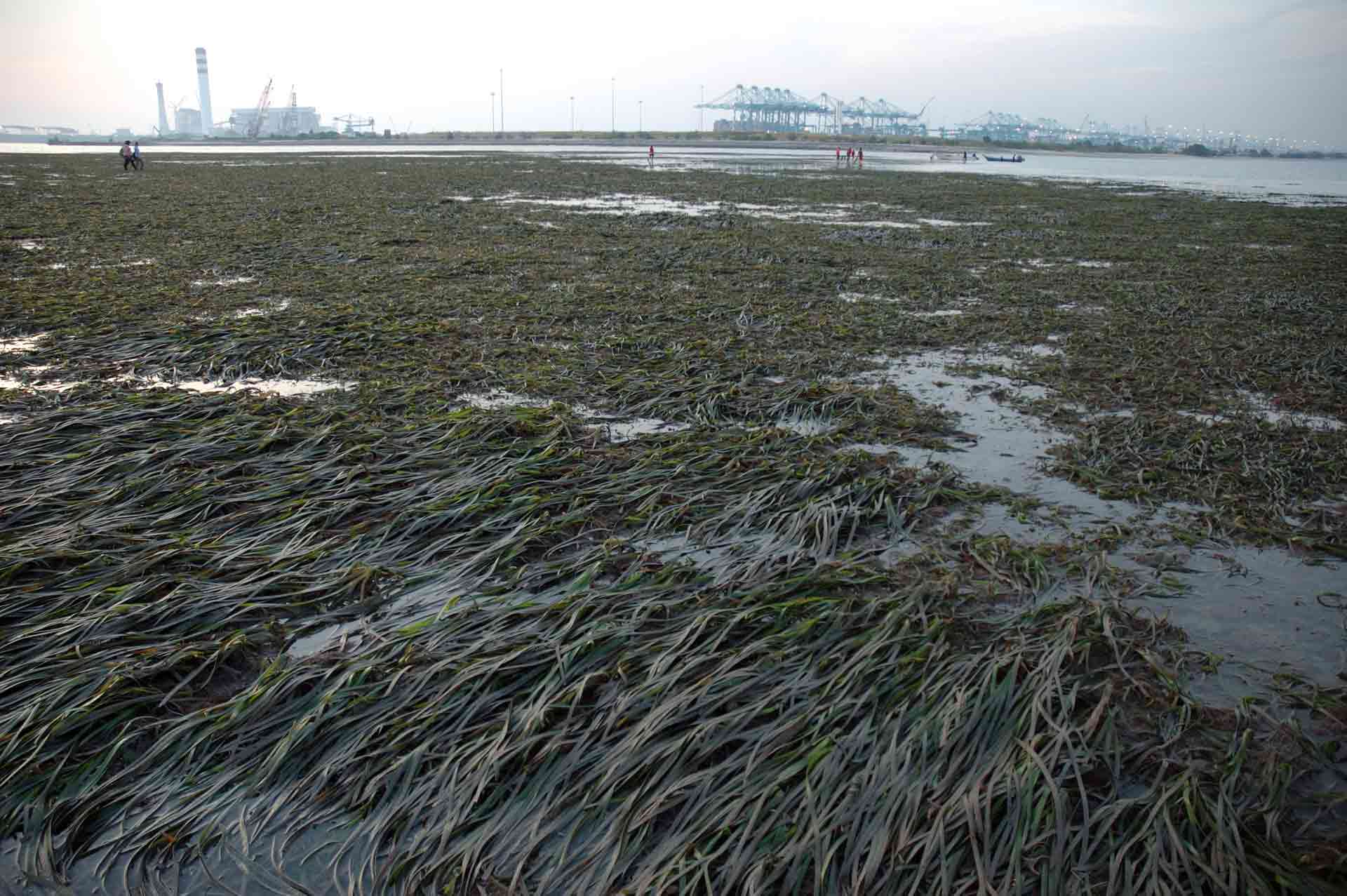
PODCAST
03 May 2021
Humble pioneer Geoff Bastyan: It was back in the 1970s that Geoff first noticed the local harbours losing their vital seagrass meadows. He self-funded a monitoring effort over the next decade, by which time almost all the seagrass was gone.
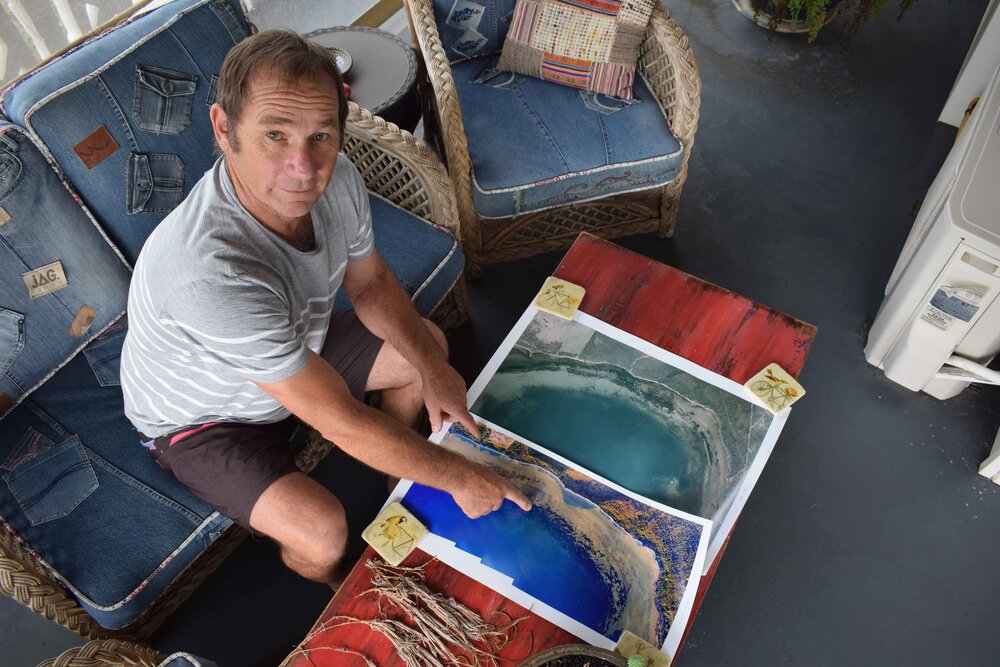
PODCAST
10 February 2021
Neptune balls:There is one more benefit that certain Seagrass species provide the Ocean and that is filtering out large amounts of microplastics. The Seagrass species, Posidonia oceanica, produce fibrous material known as Neptune balls that trap 1,500 plastic particles per kilogram of seagrass each year. The Neptune balls often wash ashore where they can be picked up and discarded.
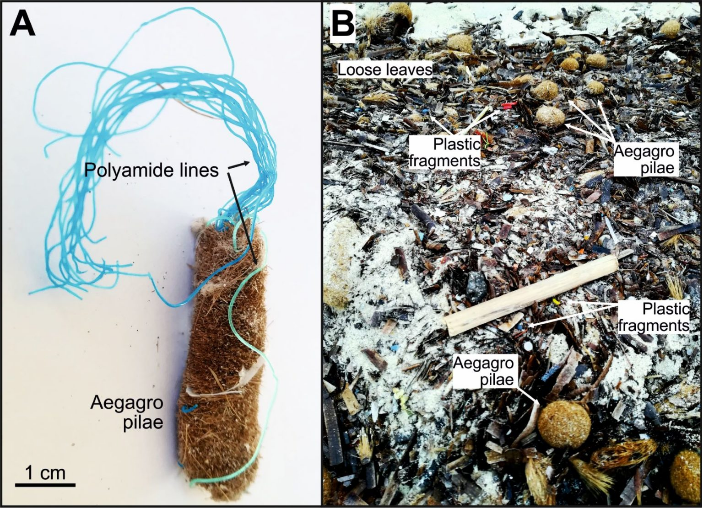
PODCAST
06 February 2021
Mysterious manatees: Dr. Ashley Scarlett is joined by Dr. Beth Brady and Kristi Ashley Collum to talk about how intriguing sirenians (manatees and dugongs) can be; how much we don’t know about their biology; and, how much more we can learn from them.
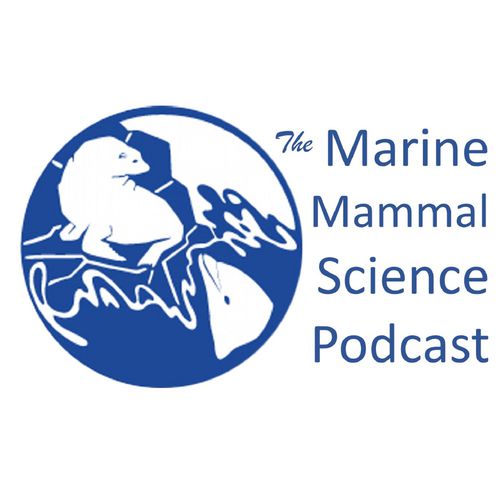
PODCAST
24 January 2021
Dugong and Mermaids: Did you know dugongs are a cultural keystone species for Indigenous people? How much do you know about them? 4ZZZ‘s Eliot Rifkin chatted with Professor Helene Marsh of the College of Science & Engineering from James Cook University in Townsville about dugongs. Here’s Helene’s research paper “Dugong Conservation in the Great Barrier Reef Marine Park“
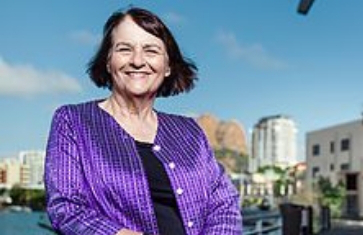
PODCAST
06 January 2021
Sublime Seagrass: Industrial activity and pollution has damaged and reduced the extent of the meadows around the UK coast. With the marine environment improving, work is being done to restore patchy seabeds and create new ones, both in the UK and around the world. Take a dip with Tom Heap as he explores the wonders and potential of these plants on the sea floor.
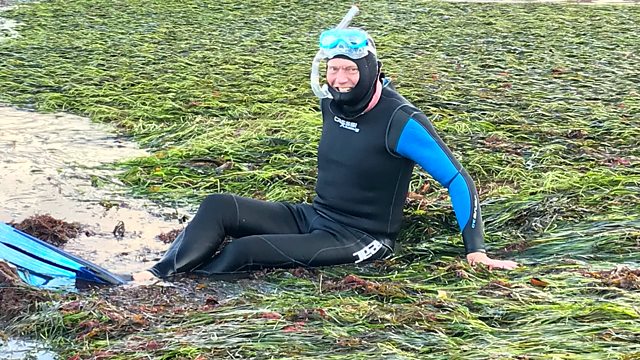
PODCAST
06 January 2021
Seagrass: An Underwater Mystery : Today’s episode will be about the hidden gem that is Seagrass. Katie gives you all the facts about her PhD! Check out what she has to say!
More info becuriousbeings

2020
PODCAST
06 November 2020
Singapore Seagrass: Seagrass meadow at Chek Jawa on offshore Pulau Ubin contained about 138 metric tonnes of carbon per hectare of seagrass. In this episode, Dr Siti Maryam, talks about an ocean-based solution to tackling climate change: Seagrass.
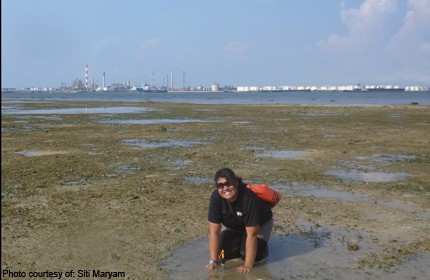
PODCAST
20 October 2020
Protecting Seagrass to preserve the GBR: CQUniversity researcher and director of CQUniversity’s Coastal Marine Ecosystems Research Centre (CMERC) Dr Emma Jackson says Australia’s seagrass faces a fresh threat as looming weather pattern puts the fragile sea plants at risk. She tells host Mary Bolling how CMERC is harvesting and germinating seeds to regenerate seagrass meadows – and what the work means for fighting climate change, too.
PODCAST
07 October 2020
Do Sea Cows eat seagrass?: This week we’re chatting to Mat Vanderklift about “blue carbon” and how it helps us fight climate change.
We also pick Mat’s brain for all the advice he would give early career researchers and scientists.
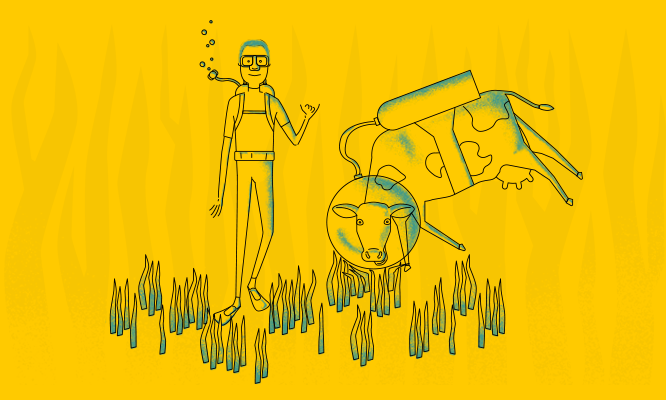
PODCAST
22 September 2020
The Great Seagrass Restoration: Professor Gary Kendrick’s great love is the WA coastline and its seagrasses. Gary and colleagues have been at the forefront of seagrass restoration and the blue carbon movement more broadly. And with such a massive extent of coastline featuring globally significant carbon stores, world heritage sites, and deep community and cultural knowledge, the potential for WA is enormous. Gary takes us to one of his favourite parts of WA, to share a little of this spectacular story.
PODCAST
07 June 2020
The Extinction Of Steller’s Sea Cow:Dr. Lorelei Crerar is Dr. Chris Parsons’s guest this week. Dr. Crerar talks about how Georg Steller discovered the Steller’s sea cow, and about its extinction.

PODCAST
11 May 2020
African Manatee Biology And Conservation:Dr. Lucy Keith-Diagne of the African Aquatic Conservation Fund is Dr. Chris Parsons’ guest this week, talking about African manatee conservation and what it’s like to conduct aquatic conservation science in Senegal. For more information: https://africanaquaticconservation.org/.

PODCAST
April 2020
Seagrass Restoration on the Barnegat Bay, NJ:Dr. Elizabeth Lacey talks about the importance of seagrass in protecting the shoreline from erosion from storms such as Superstorm Sandy. Learn more about her grant-funded research along the Barnegat Bay.
2019
PODCAST
16 December 2019
Power and Potential of Seagrass: We discuss this marine powerhouse with Dr Jillian Ooi, a teaching and research academic at the Department of Geography at the University of Malaya, who is also part of Team Sea Habitats, which studies the functional role of seagrass meadows and coral reefs in the South China Sea.
PODCAST
11 November 2019
Reviving Seagrass: An unlikely partnership involving scientists, environmentalists and the fishing industry is at the centre of efforts to restore seagrass in Corner Inlet, in Victoria’s south-east. Broadleaf seagrass has been decimated by native urchins in the area just east of Wilsons Promontory and it has the commercial fishing industry worried.
ABC Radio National
Gippsland Times
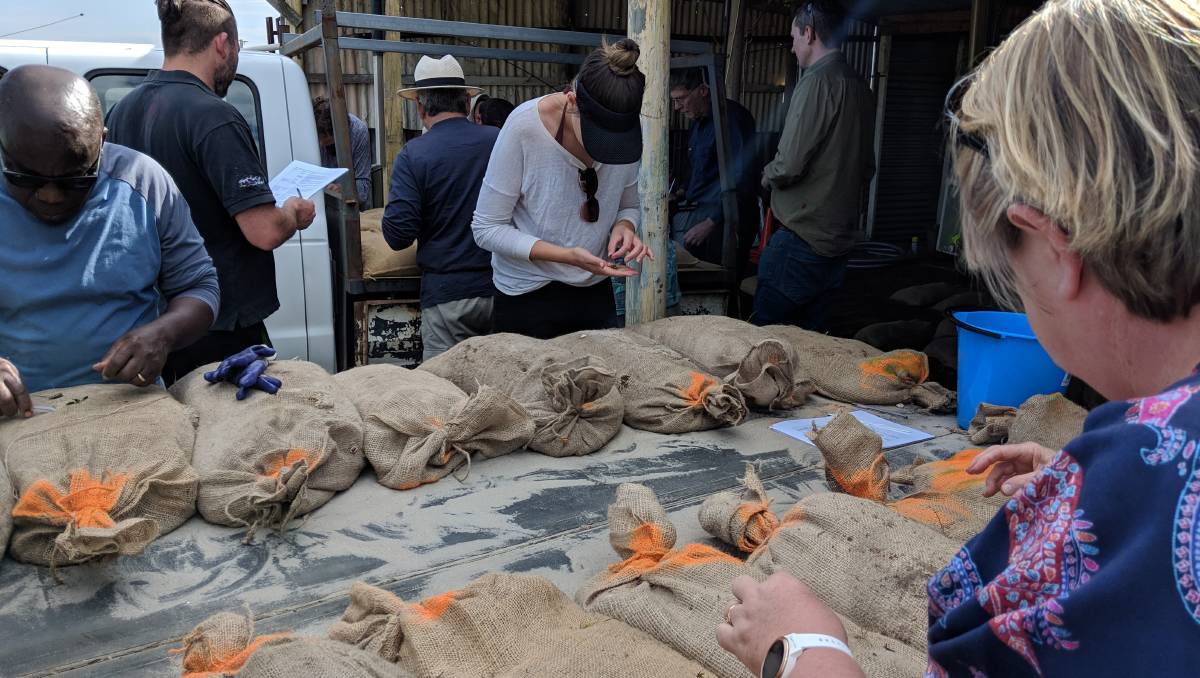
PODCAST
25 August 2019
Science Communication presentation by Fiona West, coordinator of Environs Kimberley’s Broome Community Seagrass Monitoring Project for the Roebuck Bay Working Group’s Science On The Broome Coast series 2019.
PODCAST
26 April 2019
Broome’s magical kingdom and the fight to protect it: It might not be everyone’s idea of fun…traipsing around in ankle-deep mud…monitoring the seagrass meadows in Broome’s Roebuck Bay.
But, spend five minutes with Fi West, the coordinator of Broome’s seagrass monitoring project and you’ll be a convert to the cause.
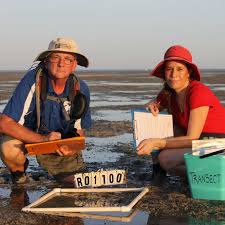
2018 - 2011
PODCAST
25 June 2018
Seagrass Restoration: Dr Emma Jackson who is researching seagrass restoration in the Gladstone region. She talks about seagrasses being the ‘Kidneys of the Great Barrier Reef’ and their importance to coastal communities. Emma also gives us an insight into her passion for sailing and her recent purchase of an old wooden sailing boat which has received a few odd looks from the locals.
PODCAST
17 October 2017
The fascinating life of a dugong: They will grow to weigh more then 400kgs, even though they live off LETTUCE! Their nickname is the Sea Cow and they are related to the Manatees. It’s the Dugong and on ‘Expand Your Brain’ we learn more about this interesting and unique mammal.
Dr Tamara Keeley is an expert on Dugongs and tells us more!
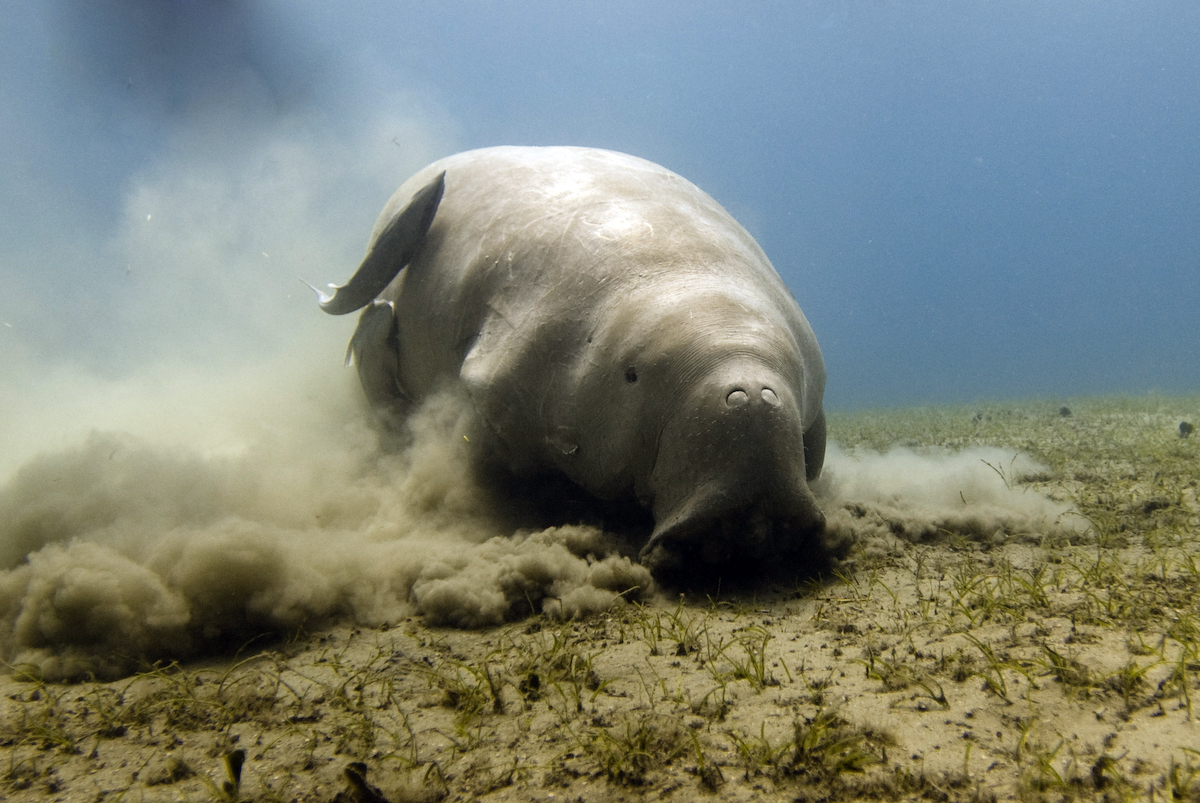
PODCAST
2016
The Dugong: The only herbivorous marine mammal, the Dugong perpetuated the myth of the mermaid. Learn all about them in this weeks episode of The Ark
PODCAST
12 February 2015
New measures to protect Australia’s threatened species: The Federal Government says it’s stepping up the fight to save some of Australia’s most threatened species. New laws have passed in the Senate to triple the penalties for people hunting dugongs and turtles in marine parks.
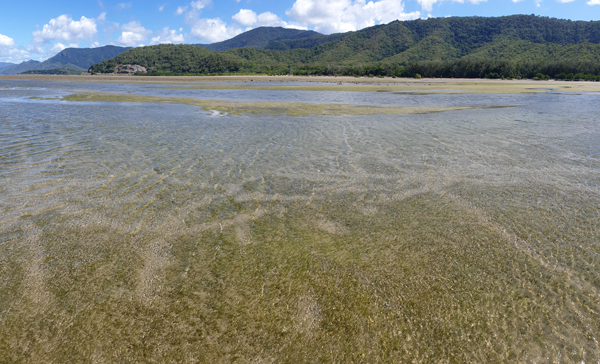
PODCAST
06 September 2013
WA researchers say seagrass meadows worth up to $5 billion in carbon dioxide: Researchers say Australia could be sitting on $5 billion of carbon dioxide stored in seagrass meadows. The Edith Cowan University study, published today in the journal PLOS ONE, has examined the role seagrass could play in mitigating climate change.
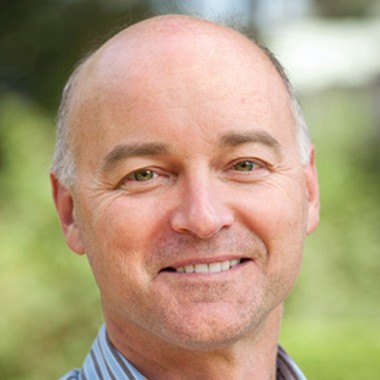
PODCAST
15 November 2011
Indigenous group proposes limits on dugong and turtle hunting: Some Indigenous leaders are so worried about dwindling dugong and turtle numbers in the Far North, they’re considering stopping the traditional hunting of the species. The Federal Environment Minister says any decisions will be locally driven.
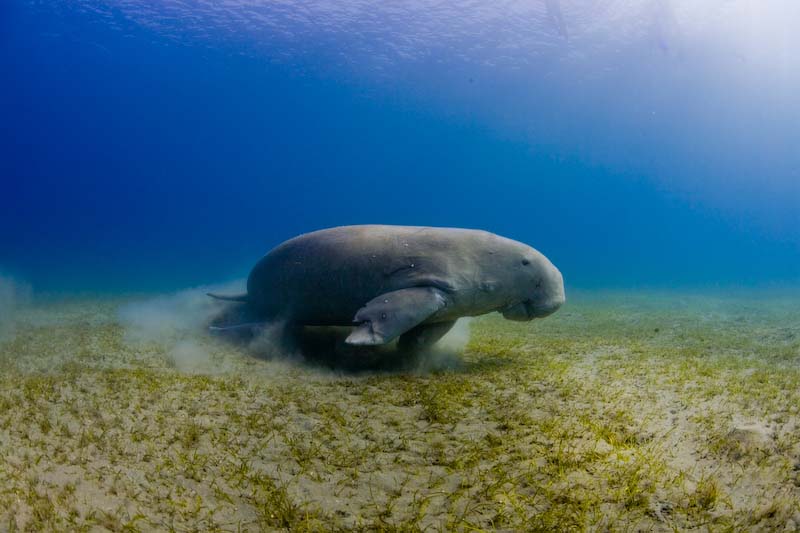
PODCAST
14 September 2011
Record turtle deaths have Qld marine experts worried: The Queensland floods are long gone but they are still having a lethal effect on some of the state’s marine life. Animal welfare groups up and down the coast are reporting record numbers of turtle and dugong deaths. Marine scientists say seagrass beds have been smothered and the next 12 to 18 months will be crucial for some species. Matt Wordsworth reports.
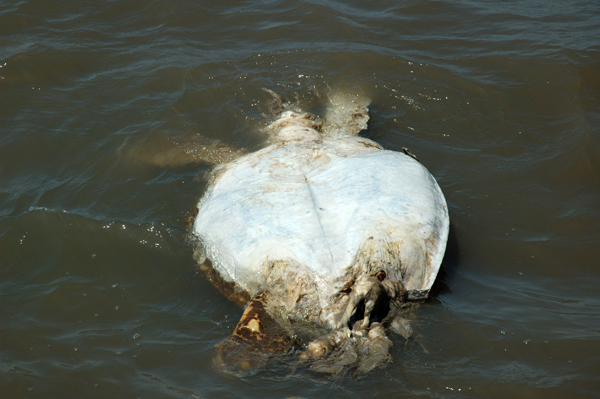
PODCAST
22 July 2011
Marine rally to end sea turtle deaths: Turtle experts from across Australia are meeting in Townsville to develop a response to how best to rehabilitate sea turtles following a number of strandings. The Queensland environment department says years of extreme weather, including cyclone Yasi, has damaged seagrass habitats, a major food source for sea turtles.
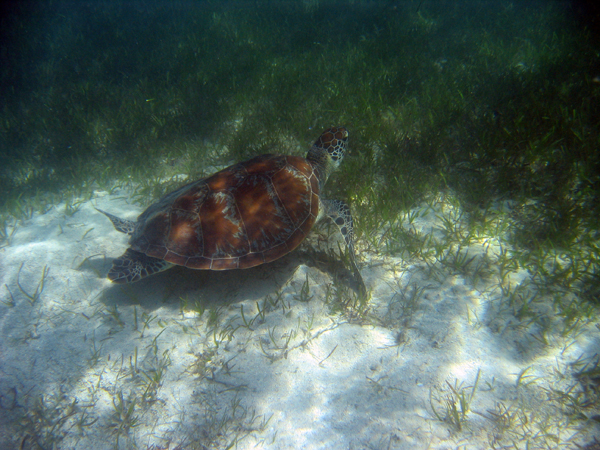
Visual Media
VISUAL
Seagrasses: what seagrasses are and why they are important. Produced by Seagrass-Watch HQ.
VISUAL
30 October 2018
Seagrass-Watch scientific monitoring and science-based education:Program Director Len McKenzie talks about Seagrass-Watch and 2 decades of Participatory scientific monitoring and science-based education
VISUAL
August 2021
The unexpected, underwater plant fighting climate change: nce considered the ugly duckling of environmental conservation, seagrass is emerging as a powerful tool for climate action. From drawing down carbon to filtering plastic pollution, marine scientist Carlos M. Duarte details the incredible things this oceanic hero does for our planet — and shows ingenious ways he and his team are protecting and rebuilding marine life.
VISUAL
08 March 2021
Seagrass Superheroes: Evie Furness and her team of superhero marine biologists from the University of Swansea, who are spearheading the UK’s first seagrass restoration site on the Pembrokeshire coast, where volunteers have already planted 750,000 seedlings out of a total of 1m.
VISUAL
09 October 2020
Saving Seagrass: Seagrass is the only flowering plant that grows in the sea providing an important habitat for many species. In the last century, it has seen a massive decline worldwide for a number of reasons. Project Seagrasses is a £400,000 restoration project, led by a team of scientists from Swansea University, backed the WWF and Sky Ocean Rescue.
WEBINAR
10 July 2020
Bringing biodiversity back to our seas: UK seagrasses are under increasing strain and in an unfavourable state, yet these meadows provide critical ecosystem services. Seagrasses are threatened with annual global losses estimated at 7%. The reasons for this decline are complex, but commonly associated with poor water quality and catchment management, coastal development, and a lack of awareness fuelled by a bias in popular media attention towards other marine ecosystems. Disease and direct physical damage also contribute to decline.
VISUAL
01 July 2020
Dugong Hunters of Excellence: Sharing science and culture in Yanyuwa saltwater country. Li-Anthawirriyarra Sea Rangers join forces with marine researchers to catch and study dugongs in the Gulf of Carpentaria.
VISUAL
07 June 2020
UN Environment Programme: Healthy seagrasses provide a source of opportunities to mitigate climate change, adapt to future changes, build resilience and offer multiple additional societal benefits. We need to act now to protect seagrasses by prioritising timely, ambitious and coordinated actions in the areas of conservation, sustainable management and restoration.
VISUAL
04 June 2020
Global distribution of seagrass meadows: Leonard McKenzie, Lina Mtwana Nordlund, Benjamin Lawrence Jones, Leanne C Cullen-Unsworth, Chris M Roelfsema, Richard Unsworth
VISUAL
12 May 2019
South Australia Seagrass: Over the last half century around one third of seagrass along the Adelaide metropolitan coast have been lost. The South Australian Government is investing $1million in seagrass restoration off the Adelaide coast – the biggest seagrass restoration project ever done in Australia.
VISUAL
17 December 2016
Seagrasses and Mangroves: They are an ancient species of flowering plants that grow submerged in all of the world’s oceans. Seagrasses link offshore coral reefs with coastal mangrove forests. Today, these “prairies of the sea,” along with mangroves, are on the decline globally.
VISUAL
19 November 2015
Turtles on Track: Jennie Gilbert is a marine biologist who is passionate about rehabilitating and saving turtles. She is one of the co-founders and driving forces behind Cairns Turtle Rehabilitation Centre (CTRC).
VISUAL
13 July 2015
Seagrass In Dubai Palms: The man-made Dubai Palms hosts a seabed as rich as the plains of Africa, perfect for sea grass. Taken from Wild Arabia.